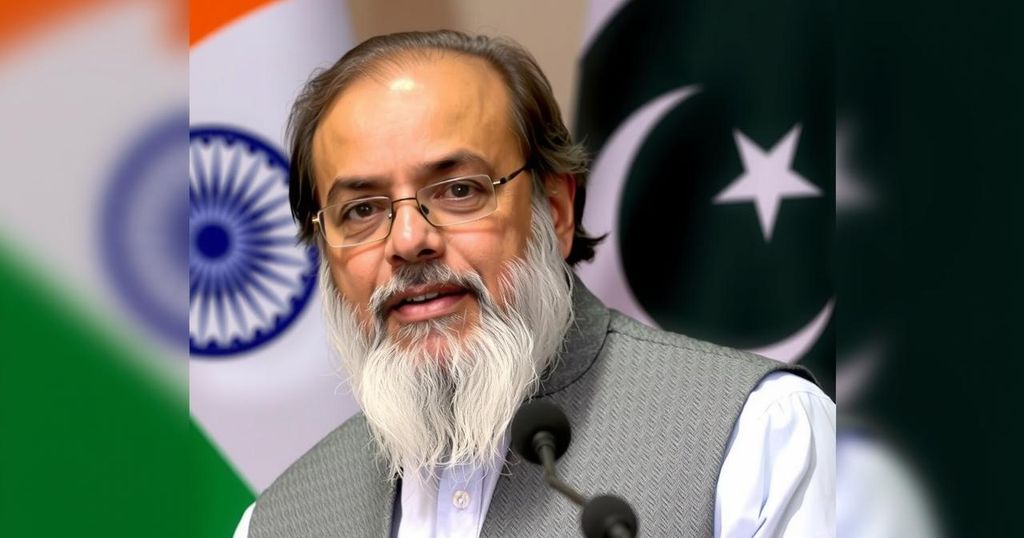India Urges Pakistan to Act Against Masood Azhar Following Threatening Speech
India has demanded strong measures from Pakistan against Masood Azhar, the head of Jaish-e-Mohammed, following his inflammatory speech that included threats against India and criticism of Indian leaders. This demand highlights concerns about Pakistan’s commitment to combating terrorism, particularly in light of Azhar’s declaration to intensify jihadist endeavors targeting India and Israel.
India has strongly urged Pakistan to take decisive action against Masood Azhar, the leader of the terrorist organization Jaish-e-Mohammed (JeM), following a speech he delivered at a public gathering in Bahawalpur. During a media briefing, Randhir Jaiswal, the spokesperson for the Ministry of External Affairs (MEA), emphasized that if reports of the content of Azhar’s speech are true, it highlights Pakistan’s ongoing duplicity in managing terrorism within its borders. Jaiswal insisted that Azhar must be held accountable for his actions, stating, “There has been denial that he is not there in Pakistan.”
The speech in question included threats against India, with Azhar expressing his intentions to intensify jihadist activities aimed at both India and Israel. He openly criticized high-profile political leaders, including Indian Prime Minister Narendra Modi and Israeli Prime Minister Benjamin Netanyahu, employing aggressive assertions about their governance. Jaiswal reiterated that, “Masood Azhar is involved in cross-border terror attacks on India and we want that strong action be taken against him.”
As a UN-designated terrorist, Azhar’s recent remarks have heightened tensions, which India perceives as a direct challenge to its sovereignty and security. The Indian government’s call for action is not only a response to Azhar’s threats but also part of a broader concern regarding Pakistan’s historical support for militant groups. This ongoing situation underscores the complexities of the relationship between India and Pakistan, especially regarding counter-terrorism efforts and regional stability.
The tension between India and Pakistan has persisted for decades, largely due to issues stemming from terrorism and territorial disputes. Jaish-e-Mohammed is known for perpetrating various attacks against India, leading to significant military and political confrontations. Masood Azhar, as the leader of JeM, has been instrumental in inciting violence and is considered a significant threat to regional security. The UN’s designation of Azhar as a terrorist further complicates Pakistan’s stance on counter-terrorism, prompting recurring allegations that the nation does not adequately address the activities of such groups operating from its soil.
In summary, India’s pressing demand for action against Masood Azhar reflects ongoing frustrations with Pakistan’s handling of terrorism, particularly regarding Jaish-e-Mohammed’s activities. As tensions rise due to Azhar’s provocative statements, the call for accountability emphasizes the critical need for a collaborative approach to counter-terrorism initiatives in South Asia. The situation remains a focal point for international observers concerned about regional security and stability.
Original Source: www.financialexpress.com







Post Comment